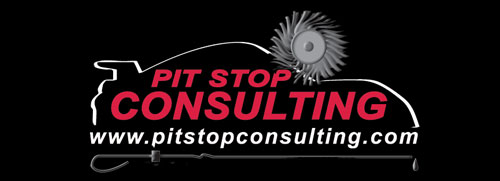Lube managers, like lube techs need an effective bonus plan. But just as managers have different duties at the lube, they also need a different bonus plan that highlights and emphasizes those different responsibilities. An incentive plan can be used as a training tool. A good manager incentive plan will do just as the name implies, and give the manager an incentive for a job well done. The manger will quickly learn what you as an owner want and expect. By carefully constructing the bonus program clarity is given to the manager as to expectations and requirements.
Pick the areas that you deem important such as volume, extra service sales, and human resources management. By setting goals and a dollar figure associated with that goal you are giving your manager his “marching orders.” As an example if you want an average ticket of $50 per car, the incentive should reflect a healthy bonus associated with reaching that goal while giving no bonus for anything under your decided minimum of for instance $45 per car. An example below shows a ticket average that is multiplied by the volume of cars for the month, thus emphasizing the importance of car count as well as ticket average.
TICKET AVERAGE Bonus (x # of Vehicles Serviced)
$45.00 – 45.99 $ .10
$46.00 – 46.99 $ .15
$47.00 – 47.99 $ .20
$48.00 – 48.99 $ .25
$49.00 – 49.99 $ .30
$50.00 – 50.99 $ .35
$51.00 – 51.99 $ .40
$47.00 – 52.99 $ .45
$53.00 – 53.99 $ .50
By using this example a manager operating a lube with a volume of 1000 cars in a month would receive an incentive of $350 for reaching the desired ticket average of $50 per car. Many of you have experienced a declining car count at your lube in recent years. The manager can be very effective in increasing car counts.
By lowering bay times and ratcheting up the customer service levels, car counts can be positively affected. If you have a car wash on the premises, your manager has the opportunity to siphon some of the wash traffic into the lube bays, thus increasing car count. Having your manager compete against the previous yearʼs monthly volume you reward him for positive growth. A caveat might be the volume increase must be met with the aforementioned minimum ticket average of at least $45 per car.
Volume Increase Bonus
+ 20 $2 X the # of additional cars serviced
+ 30 $3
+ 40 $4
+ 50 $5
+ 60 $6
+ 70 $7
A manager who controls shop labor saves the company money. A very common drain in profits is in the human resources department. Just like the ticket average, the manager has direct control of the labor. Below is an example of what a manger might be expect to see for human resources bonus.
HUMAN RESOURCES
% of Payroll Bonus
Over 25% —-
24.0 – 24.99 $ 10
23.0 – 23.99 $ 20
22.0 – 22.99 $ 40
21.0 – 21.99 $ 80
20.0 – 20.99 $ 100
19.0 – 19.99 $ 125
18.0 – 18.99 $ 150
Some operators are so serious about labor that they include a penalty for excessive labor that negatively affects the managerʼs incentive pool when they fail to reach minimum goals. The amount of deducted bonus is not as important as simply declaring the importance of the labor percentage. The clarity this stipulation brings is the significant factor.
If our manager reached the goals of $50 per car, increased car count over last years monthly numbers by 28 cars and achieved a labor percentage of 20.3% his monthly bonus would be $490. If he succeeded in doing this every month he increased he yearly earnings by $5880.00! That is a significant amount and would certainly get the attention of a manager stuck getting a straight salary. Of course simply giving the manager your expectations will not automatically make this happen. Training of the manager and his crew is imperative to success.
Incentive programs should be reviewed annually and be revised according to the needs of the company at that time. It should go without saying, but the purpose of revising any incentive program is to improve performance, not decrease earnings. Needs of the location may change and revising incentive plans yearly gives you the opportunity to address those needs. Before attaching dollar figures to each goal, make sure you can live with the results if the manager tops out the goals. You should be happy to write the incentive checks and if you assume the manager will not get the goals and set the bonus too high for your budget or your liking it will be a serious de-motivator if you change the program in midstream. A well designed manager incentive bonus plan both motivates the manager and satisfies the needs of the company. Bonus programs need to be a win/win situation. When the plan cannot a minimum accomplish these goals, a new plan is needed.

